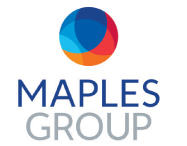The Republic of Marshall Islands (often referred to as the Marshall Islands) is a self-governed independent state with its own constitution, located just north of the Equator in the Pacific Ocean. The Marshall Islands takes its name from John Marshall, captain of the three-masted barque, Scarborough, which passed through the area in late June, 1788.
The Marshall Islands retains strong links to the US under a compact of free association. Importantly, in a shipping finance context, the Marshall Islands is a contracting party to the 1961 Hague Convention Abolishing the Requirement of Legalization for Foreign Documents, and a contracting state to the 1958 New York Convention on the Recognition and Enforcement of Foreign Arbitral Awards.
Ship register

Partner
Maples Group’s
The Marshall Islands ship register is positioned within the top three largest ship registries in the world by deadweight tonnage, representing a very significant number of the world’s commercial shipping fleet.
Owners, operators and lessors often choose the Marshall Islands as the flag state for their vessels, and the Marshall Islands flag, and therefore Marshall Islands ship mortgages, are widely accepted by financiers.
For the more common types of commercial ships, such as bulkers, tankers and container ships, the Marshall Islands will accept registration subject to due diligence and certain age and size restrictions. The Marshall Islands also accepts yachts onto the register.
The Marshall Islands will permit any Marshall Islands-incorporated company to fly its jurisdiction’s flag, and any entity which is a registered foreign maritime entity (FME) under section 119 of the Marshall Islands’ Business Corporations Act (BCA). The FME registration typically takes around a day to file and process.
There are age limit requirements for the use of the Marshall Islands flag (generally about 20 years, although the average age of the fleet is 9.7 years) before which a pre-registration survey or waiver is required.
There is no prescribed form of mortgage for the Marshall Islands, and a ship mortgage can be recorded at any office of the Marshall Islands Maritime & Corporate Administrators, Inc.
The Marshall Islands flag has both a provisional and a permanent registration procedure.
Parallel registration
The Marshall Islands permits dual/parallel registration (subject to the rules of the other flag), provided a bareboat charter of the vessel is in full force, and effect and permission is granted by the Chief of the Vessel Registration Division of the Register. The period of bareboat charter registration is two years, with the possibility to extend, subject to certain rules.
Finance lease registration
Finance leases, ordinarily in the form of a bareboat charter with certain specific terms included, can be recorded at the registry. Once the finance lease/charter has been recorded, this will confer a proprietary security interest, in favour of the owner, over the vessel.
Cancellation
Closure of the ship’s register is straightforward, once all existing mortgages have been discharged.
Assuming that all mortgages of record are discharged, a certificate cancelling the ship’s register is available on delivery to the maritime administrator of various documents, including a copy of the bill of sale where change of ownership has occurred.
Tax exemption, exchange control, and recent changes in law
The Marshall Islands statutorily exempts non-resident domestic corporations from tax. Marshall Islands borrowers, i.e., special purpose companies (SPCs), are generally considered non-resident and are therefore exempt, and there are no withholding taxes levied on the repayment of loans (principal and/or interest) to non-resident lenders.
A foreign lender may extend credit to non-resident Marshall Island companies (as borrowers, where they are giving, as security, mortgages over vessels registered under the Marshall Islands Maritime Act) without having to concern itself with domestic regulation or approvals. The Marshall Islands has no exchange controls.
Recently, the Marshall Islands has adopted amendments to its Associations Law (and elsewhere), to bring the Marshall Islands in line with the implementation of certain transparency requirements of the Organization for Economic Co-operation and Development (OECD), particularly in relation to inter-jurisdictional exchange of ownership information, for tax compliance purposes. The Marshall Islands government remains very alive, and continues to take proactive measures to satisfactorily address issues relating to economic substance, and base erosion and profit sharing (BEPS).
Relatively recent amendments to the BCA require all Marshall Islands corporations, excluding publicly traded companies, to keep and maintain a record of their ultimate beneficial owners. A beneficial owner is defined as a natural person who exercises control over a company directly or indirectly, and will generally be deemed to hold more than 25% of the interests of the company. All Marshall Islands corporations issuing bearer shares must now maintain up-to-date records of all holders and beneficial owners of bearer shares, as well as any subsequent transfers.
Jonathan Silver is a partner in the Maples Group’s Hong Kong office.

Maples Group
53/F, The Centre,
99 Queen’s Road Central
Hong Kong
www.maples.com
Contact details:
Tel: +852 3690 7400
Email: jonathan.silver@maples.com
























